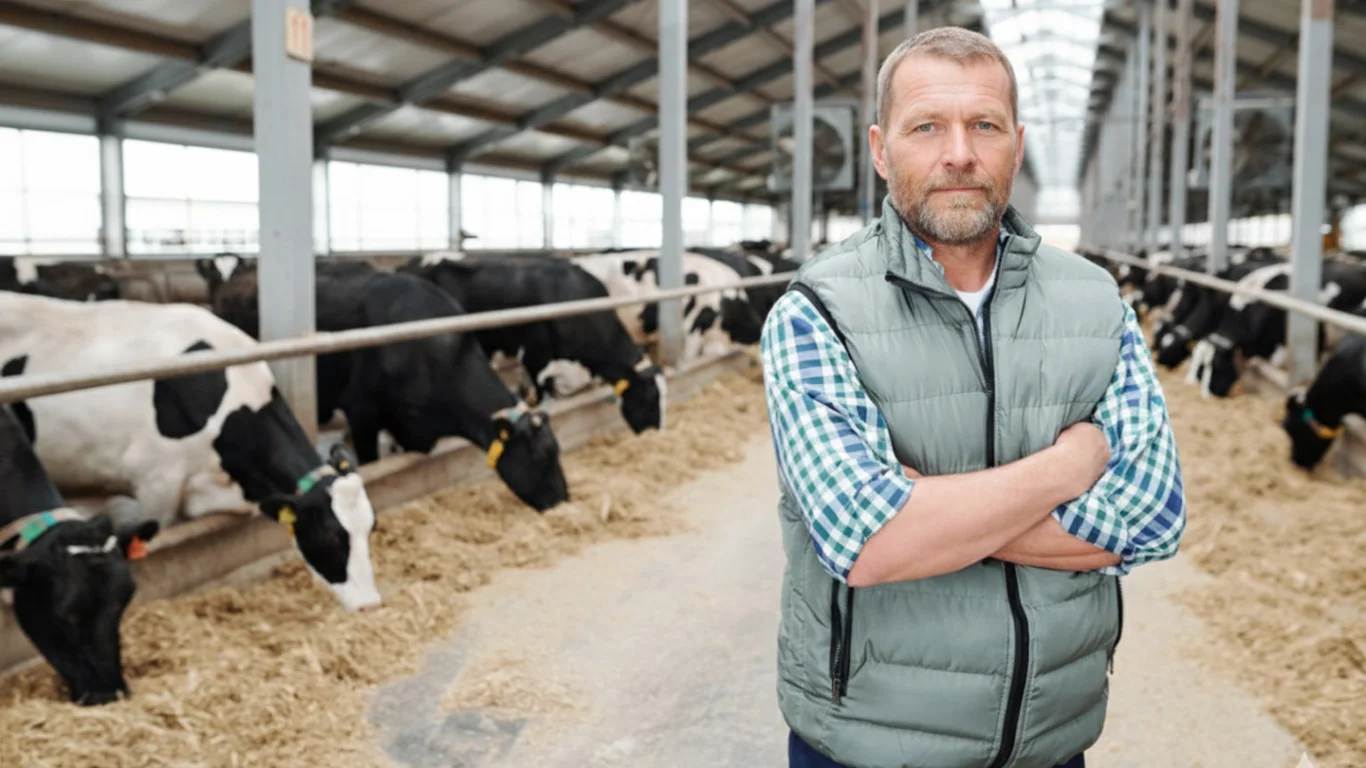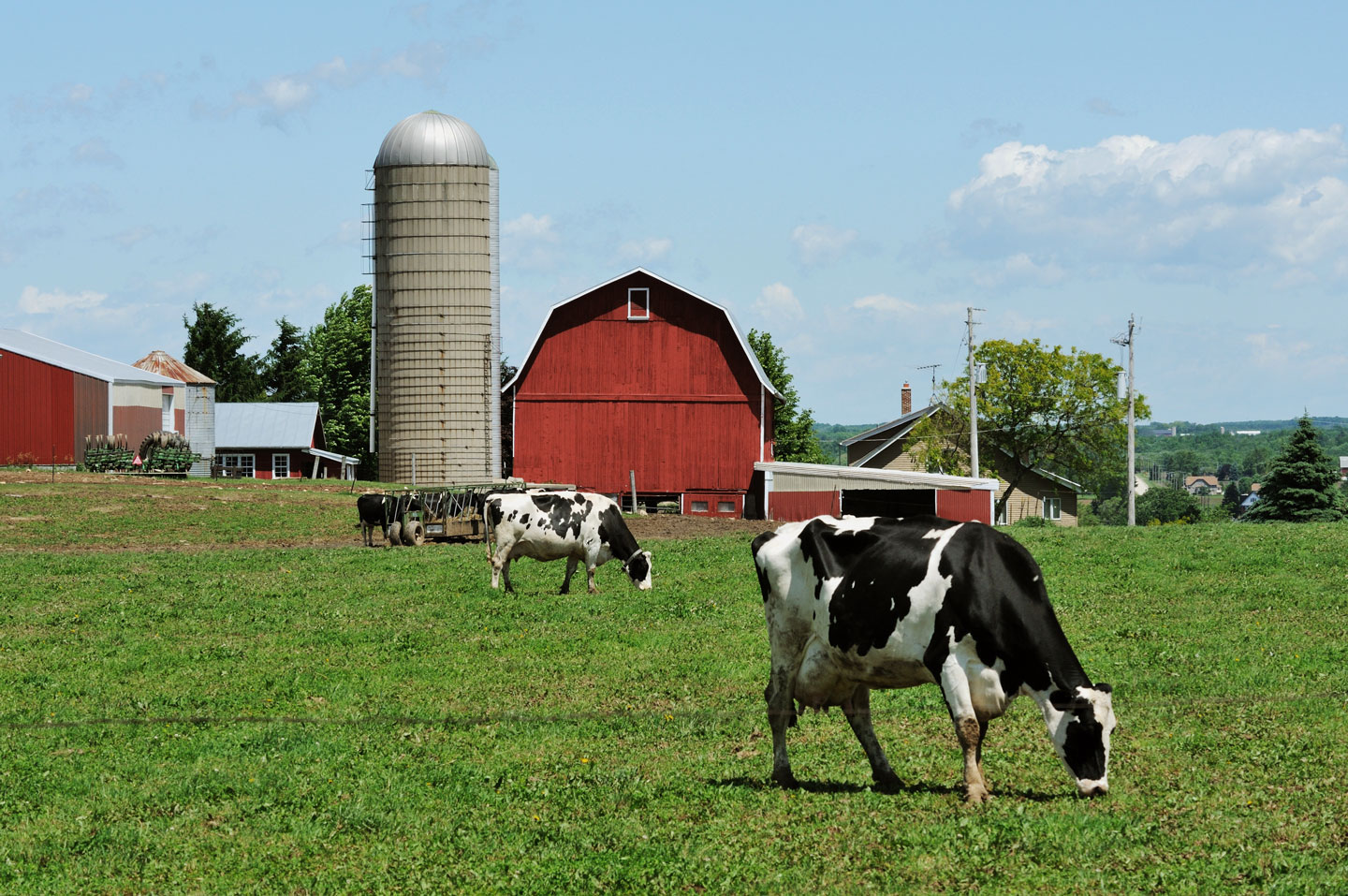Wisconsin, Estados Unidos
Liberty's Project: Livestock Waste Transformed into Negative Footprint Energy
Galileo Technologies deployed its modular and plug-and-play technology in Wisconsin to transform manure from two dairy farms into high-quality Renewable Natural Gas (RNG).

The challenge: Achieving a negative carbon footprint impact
Dairy farms are essential to the agricultural industry, but managing the manure they generate presents a dual challenge: it contributes to greenhouse gas (GHG) emissions and represents a missed economic opportunity. Liberty, a subsidiary of Algonquin Power & Utilities Corp., sought a solution to convert this agricultural waste into a sustainable and profitable energy source. The strategic goal was to drive projects that would not only reduce emissions but also generate a negative carbon impact by capturing more GHGs than the fuel would emit.
"Agricultural activity is responsible for 24% of global greenhouse gas (GHG) emissions. If we are to achieve carbon neutrality by 2050, small family farms in the United States have a key role to play, as they account for 90% of the country's farms and 49% of the land with full biomass energy potential."
María de la Orden – Executive at Galileo Technologies.
The solution: Biobox, fast-track implementation technology
Liberty selected Galileo Technologies for its deep knowledge of natural gas, its innovative design, and, crucially, its modular installation capability.
Galileo’s answer was the Microbox-Bio station (currently marketed as Biobox), a proven, comprehensive, and modular solution, fully assembled and tested in the factory. Its plug-and-play configuration accelerates the time-to-market and the monetization of Biomethane, minimizing disruptions to daily operations.
Key project components:
- Integrated production: The Biobox station is designed for the integrated production of Bio-CNG (Compressed Biomethane).
- Biogas upgrading: Each unit processes up to 300 scfm (standard cubic feet per minute) of raw biogas.
- High-quality product: The station delivers compressed Bio-CNG at 3600 psi or 248 bar, producing an exceptional quality gas with 99.9% methane.
- Transportation and injection: The Bio-CNG is transported by road for injection into natural gas pipelines.

Expanding the commitment: A growing partnership in Wisconsin
The project began at one of Liberty’s dairy farms in Wisconsin. The first unit was installed in November 2021 to process waste from a herd of 2,500 cattle.
Due to the initial success, the partnership expanded rapidly: a second unit was installed on a farm with 1,700 dairy cows. This expansion is part of Liberty's strategic acquisition of Sandhill RNG, whose plan includes the development of four sites in Wisconsin, demonstrating the scalability of Galileo’s modular design. The units can operate efficiently even at a 30−40% turndown from their maximum capacity.
The results: Efficiency, reliability, and customer satisfaction
The success of the project is confirmed by the operational performance and feedback from the Liberty team:
Operational excellence
- High availability in harsh environments: Equipment reliability was a key factor, with proven performance even in Wisconsin’s adverse climate.
- Minimal impact: The modular installation met the objective of minimizing disruptions to daily farm operations.
- Consistent quality: Clean gas methane concentrations have consistently remained above 99%.
- Agile support: The Liberty team highlighted the positive experience with Galileo’s support, including on-site technical assistance and quick response from the programming area.
The producer's perspective (The modular simplicity)
The system's modularity proved to be a decisive selling point for producers who value simple and clear logistics:
"When we speak to farmers and tell them that their product will come in a container, they really appreciate that efficiency... they appreciate that they can quickly visualize the size of facility that’s coming in... and it really helps us explain to them the size of the project site and the simplicity of the design."
Sally Taylor – Senior Manager of Business Development at Liberty Power.

Leadership vision
The project aligns with Liberty’s strategy for the energy transition.
"Farm-based RNG projects offer dairy farmers the opportunity to meaningfully contribute to reduce greenhouse gas emissions as well as provide a valuable source of additional revenues. Liberty strives to work closely with dairies in the planning phase to ensure the project development and operation can be integrated into the existing farm operations with minimal impact."
Tom West – Director of Business Development at Liberty.
An outstanding model for global biomethane expansion
The Liberty Project is an outstanding example of how innovative, modular technology can transform agricultural waste into a sustainable, high-value energy source with a negative carbon footprint. The success in Wisconsin demonstrates the practical, commercial, and environmental benefits of this approach for farm owners and the planet.

